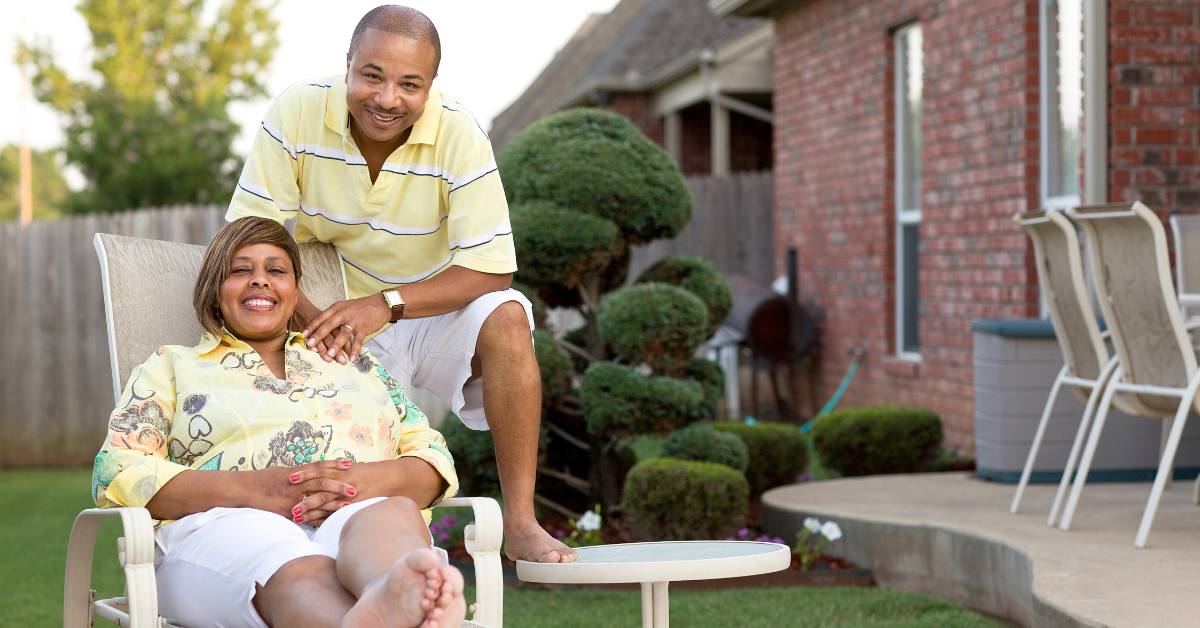USDA loans are zero-down, but there is one obstacle you still need to prepare for – closing costs.
The amount you need to pay upfront can surprise you. And if you are not financially prepared, this can derail your loan application and cause a delay in buying your home.
In this article, we give you the lowdown on closing costs so you’ll know what to expect and prepare ahead!
Does a USDA Loan Cover Closing Costs?
Applying for a USDA loan gives you the opportunity to buy your dream home with 100% financing. Like any other loan, you will still need to pay closing costs.
These are expenses related to processing your loan and finalizing the sale of your home. This includes checking eligibility requirements and verifying your submitted documents.
The USDA does not cover closing costs. However, there are some fees you can roll into your USDA loan, while there are fees you can negotiate with your lender.
What Are the Closing Costs on a USDA Loan?
Compared to FHA loans, you won’t need a 3.5% downpayment to buy your own home. However, paying closing costs is a must.
The USDA has upfront fees that help protect against losses if borrowers default on their loans. This includes:
- Guarantee Fee – Instead of mortgage insurance, USDA charges a guarantee fee. This is usually 1% of the total loan amount. You can pay the guarantee fee upfront or roll it into your mortgage.
- Annual Interest – Borrowers also pay an annual interest fee of 0.35% of the current loan amount. This is paid in monthly installments.
There are two other categories of closing costs. The first deals with expenses related to your mortgage. Meanwhile, the second has to do with homeownership expenses.
Mortgage-Related Closing Costs
- Origination Fee – This is the fee charged by the lender for the cost of processing your loan application. It is typically 1% of the total loan amount.
- Underwriting Fee – The lender may also charge an underwriting fee. This involves verifying USDA loan requirements and evaluating your risk as a borrower. This is a flat rate that ranges from $400 to $1000.
- Credit Reports – Lenders use credit reports to verify your financial situation. Depending on how many members are in your household, this fee can range from $10 to $100.
- Discount Points – You can buy discount points from your lender to get a lower interest rate. This is about 1% of the total loan amount. However, this closing cost is optional.
- Appraisal Fee – A home appraisal is one of the requirements to close your loan. As such, a certified appraiser must inspect your home to determine its property value. The fee can range from $300 to $750.
- Title Search and Insurance Fees – This fee is used to check if there are ownership issues, such as claims or liens linked to your home. Insurance also protects against potential claims to the property.
- Escrow Fee – The title company may charge a fee for setting up your escrow account.
- Other Fees – Your lender may also charge additional fees for services rendered related to your loan.
Non-Loan Related Closing Costs
- Prepaid Property Taxes – Your lender may charge prepaid taxes amounting to 1% of the property value. This amount is put into your escrow account.
- Prepaid Interest – You will have to pay interest covering the days between your closing date and the end of the month.
- Home Insurance Premiums – Lenders may also charge insurance premiums for the first year of homeownership. This is added to your escrow account.
- Recording Fees – These are fees for recording your deed and other loan-related documents to the county. This may range from $125 to $300.
- Homeowner Association Fees – If your home has a homeowners association (HOA), you may have to pay your dues upfront.
- Home Warranty – This warranty covers house-related repairs and replacements for the first year of homeownership. These are expenses not covered by your home insurance policy. Not all borrowers are required to pay for a home warranty.
- Other Fees – There may be other fees, such as pest and sewer system inspections. This will depend on your location.
What Does a USDA Loan Cover?

USDA loans work by providing 100% financing on your own home. But since private lenders are the ones who process your loan, there are other costs involved.
They may charge fees related to the processing and underwriting of your loan.
There are also some inevitable expenses that come with homeownership. This includes taxes, insurance premiums, and homeowner association fees.
All these expenses make up your closing costs.
If you plan to construct your own home, you can save money with a USDA loan, and that’s because you’ll only end up paying one set of closing costs.
Can You Roll Closing Costs Into a USDA Loan?
Only the guarantee fee can be rolled into your USDA loan.
So if the appraised value of your home is $150,000, you can get a loan amount of $150,000 plus the $1,500 guarantee fee.
This means that your total loan amount will be $151,500.
People refinancing with a USDA loan can also roll these closing costs into their loan amount.
How Much Are Closing Costs on a USDA Loan?
Closing costs are typically 3 to 6% of the total loan amount, but the total amount depends on several factors, such as lender fees and conditions of your loan.
Closing costs may also increase depending on your location. Some states will have higher taxes and insurance costs.
How to Calculate Closing Costs for USDA Loans
Want to avoid getting surprised by your closing costs?
Here is a sample calculation to give you an idea of how much money you need to close your USDA loan:
| Loan Terms | |
| Loan Amount (With 1% Guarantee Fee) | $151,500 |
| Sale Price | $150,000 |
| Closing Costs | |
| Origination Fee | $1,500 |
| Underwriting Fee | $500 |
| Credit Reports | $100 |
| Appraisal Fee | $450 |
| Title Search and Insurance | $1,100 |
| Escrow/Closing Fee | $600 |
| Prepaid Property Tax | $800 |
| Prepaid Interest | $150 |
| Home Insurance | $1,300 |
| Recording Fee | $150 |
| Homeowner Association Dues | $300 |
| Home Warranty | $300 |
| Total Closing Costs | $7,250 |
| Seller Credit | (-$3,000) |
| Discount Points | (-$1,500) |
| Gift Funds | (-$500) |
| Cash to Close | $2,250 |
For a more accurate estimate of the closing costs, feel free to contact us today.
Can Seller Pay Closing Costs on USDA Loans
Seller concessions can help you lower your closing costs. On USDA loans, sellers can pay up to 6% of your home’s sale price.
However, this scenario does not always happen. It is more likely in a buyer’s market or when the seller wants to sell their property fast.
Who Pays Closing Costs on USDA Loan?
Borrowers need to pay closing costs on their USDA loans. However, some strategies can help you cover these costs.
- Gift Funds – You can use money gifted by family members to cover closing costs. You must submit a letter that states that the funds are a gift and you are not expected to repay the amount.
- Lender Credits – You can negotiate with your lender to lower closing costs, and in exchange, they will increase your interest rate. You’ll end up paying more interest in the long run. However, this can be a good option if you have no other way to cover closing costs.
- Assistance Programs – You can also seek grants or loans that can cover your closing costs. Some grants function as gift funds, so you won’t have to repay them — as long as you meet certain conditions. Some loans are also forgivable as long as you stay in your home for a set number of years.
Contact us today to learn more about loan assistance programs.
How Much Does a USDA Loan Cover?
There are two scenarios where the USDA may help cover your closing costs.
The first is if the appraised value of your home is higher than the sale price.
For example, the sale price is 125,000, but the appraised value is 130,000. You can get a loan for 130,000 and use the excess funds to cover your closing costs.
The second is if you apply for a Section 502 Direct Loan. Borrowers under this loan may be eligible for payment subsidies.
You can receive a monthly subsidy if you meet the following:
- Adjusted income must not exceed the low-income limit
- Not currently receiving any other payment subsidy
- Must live in the home for the entire duration of the loan
This won’t directly cover closing costs but may help ease your monthly payments.
Preparing Ahead for Closing Costs

Everyone dreams of finally stepping into their own home. With a USDA loan, there’s no need to save up for a downpayment to turn your dream home into a reality.
However, there are still costs that you need to cover. Closing costs include expenses incurred in processing your loan. There are also a lot of expenses that come with homeownership, such as taxes and insurance.
The total amount can be a lot for most people. Thankfully, there are some closing costs that you can roll into your USDA loan. There are also strategies that can help lower your closing costs. This involves negotiating with your seller and lender for concessions.
If you need more help in estimating the closing costs for your loan, do feel free to get in touch with us.
Frequently Asked Questions
Can you negotiate closing costs with a USDA loan?
Borrowers can negotiate with the seller and ask for concessions. You may also ask the lender if they can waive some of the closing fees. There may be some trade-offs to this, such as increased interest rates.
Can closing costs be included in a USDA loan?
Some closing costs, such as the 1% guarantee fee, can be rolled into your USDA loan. If your home’s appraised value exceeds the sale price, you can use the excess funds to pay closing costs.
Can you borrow extra money on a USDA loan?
The USDA finances 100% of your home’s appraised value plus the 1% guarantee fee. You can check for assistance programs or subsidies if you need extra money to pay closing costs.






